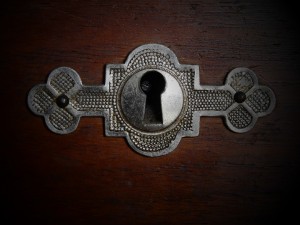
I remember a line used by my catechism teachers when I was a kid that made reference to the holes made in Jesus’ hands and side. My teachers told me that this was used to prove to his disciples that it really was him after the resurrection, or more specifically, prove that the Lord really did die.
My teachers were onto something…that there was something really important about the resurrected Christ bearing, even in his ascended form, the scars of his ordeal on earth. The full implications of Christ bearing the holes of his crucifixion, however, came to light when reading James Alison’s Raising Abel, a book I bought more than a decade ago and had been sitting on my shelf, unread, ever since.
In that book, Alison makes reference to a line from one of the 14th-century English mystic Julian of Norwich’s many quotations (compiled in her Revelations of Divine Love ). There, Julian suggests that, in heaven, a person’s sins are not obliterated from the person, leaving no trace behind. Rather, their “tokens”, as Julian calls them, become transformed. It must first be noted that sin per se cannot be in heaven, as Julian says, since sin is a negation of one’s being and so has no ability to be present in the presence of God who is the source of all being. In spite of the awfulness of sin, Julian says, God’s designs transforms what was a source of shame into a source of glory, first of the person but ultimately points to the glory of God.
In other words, says Alison, the scars of humankind’s sin – the holes of Jesus’ crucifixion – are not so much reminders of past sins, as they are trophies of present glory. By wearing the holes, Jesus also takes up the processes that put those holes there in the first place, sin and its resultant violence, transforming them into a demonstration of God’s fidelity and design. It must be remembered that God chose to conquer death, the endpoint of sin, not by obliterating it with a wave of a hand or a word, but by immersing Himself into the mire of death, and then subverting it from within its own logic. As St Augustine said in one of his sermons, Jesus was victor because he was a victim, not in spite of it.
In a way, this gives a very personal edge to the end of one of Julian’s reflections when she says
By this honour, our courteous Lord shows for them here, in part, something similar to what is done for them in fullness there, for there the token of sin is transformed into glory
It is personal because it gives a voice to our experiences of suffering, our very personal contact with the many fruits of sin – ours and the whole world’s. Rather that wish for these to go away, both Julian and Alison remind us that the Christian is called to do something else. Not simply to “offer it up” like a good passive Catholic, but to actively seek with the Lord the way in which this particular suffering is being taken up into the redemptive processes of the Body of Christ.












